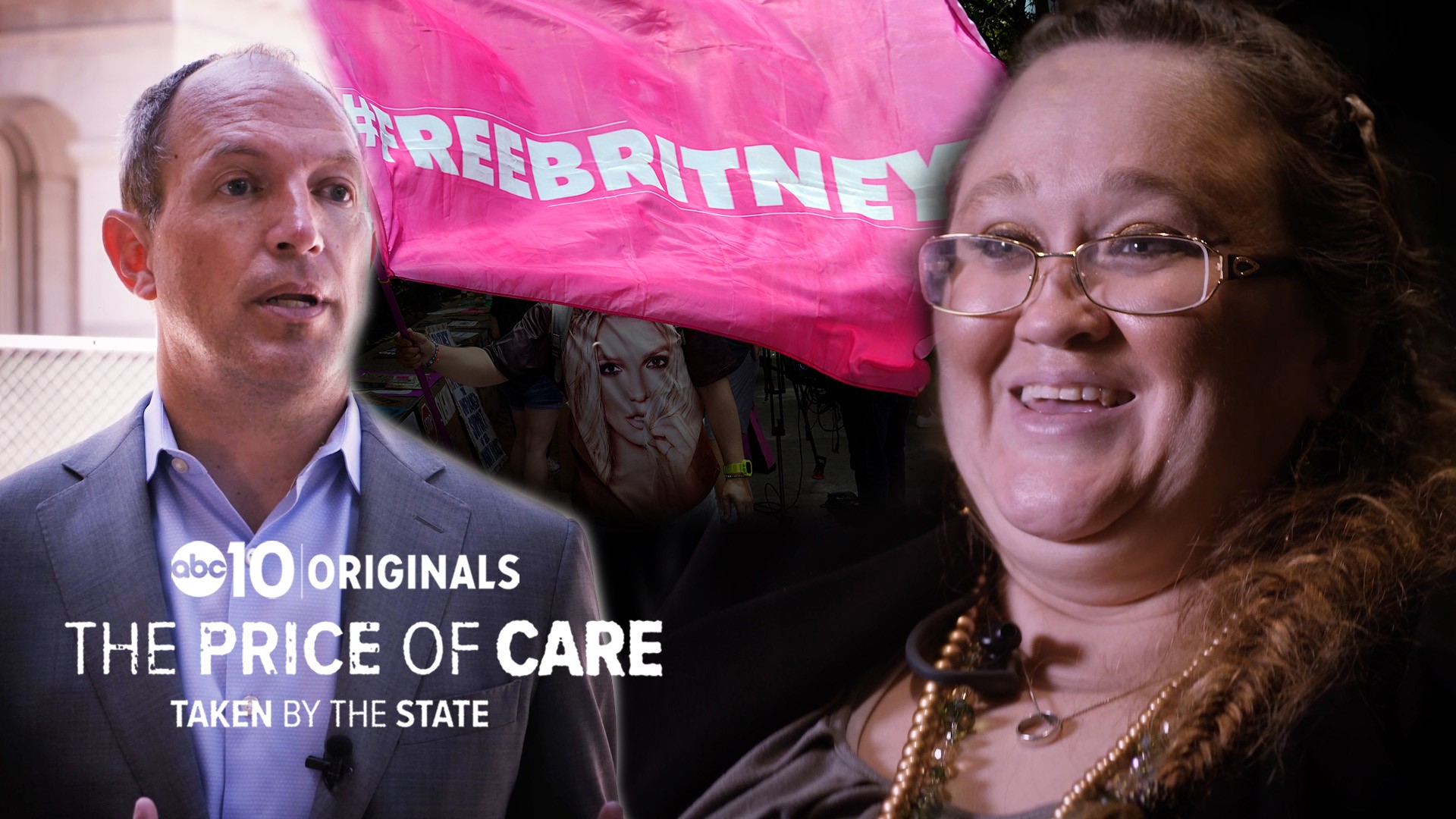SACRAMENTO, Calif. — From the streets of Los Angeles to the California State Capitol, it's been a wild ride for Free Britney advocate Leanne Simmons.
"I started out as an advocate in the Free Britney movement as a lifelong Britney Spears fan," said Simmons.
In the last few years, her passion for Spears has transformed into changing the system that conserved the superstar.
"It doesn't take long to see this goes so much beyond Britney," said Simmons.
As a leader of the Free Britney movement in Los Angeles, Simmons played an essential role in organizing rallies. She began bringing advocate voices of those impacted by conservatorships to the stage during rallies that were attended by hundreds.
"We started to shift focus at a lot of rallies in Los Angeles to raise awareness about mental health advocacy groups and disability rights advocacy groups," said Simmons.
The majority of those placed under conservatorship are those with disabilities, our two-year investigation, "The Price of Care: Taken by the State," found.
We also found that once someone is placed under a conservatorship, it's near impossible to get out — even for a pop superstar like Spears, whose thousands of fans worldwide united to put pressure on the system to abolish her conservatorship in a movement that became known as Free Britney.
When her conservatorship was terminated in November 2021, there was dancing in the streets.
But the celebration was short-lived for advocates like Simmons; they had work to do.
"We didn't have much time to rest on that because this is such a timely issue that affects so many people," said Simmons.
Judy Mark is the co-founder and President of Disability Voices United, an organization directed by and for individuals with disabilities and their families that advocates for choice, control, and equity on a number of measures.
Mark and Simmons were two advocates that used Spears' conservatorship to bring awareness and change to California's broken conservatorship system — a system that impacts thousands across the state.
"We now want to push people to think bigger," said Simmons. "To think, 'What about someone who doesn't have a whole fan base behind them? What about someone who has been fighting these systems and these different entities in the state of California for years? And haven't seen any success.'"
Thanks to their efforts, AB1663 was created and sponsored by Assemblymember Brian Maienschein.
"At heart, this is a human rights bill," Maienschein told ABC10.
It's also a bill that took a lot of effort and faced opposition.
"Honestly, it has been such a long road," said Mark. "There were many times we weren't sure this bill was going to get passed."
But it did pass on October 4, 2022.
"I feel like we have really passed a revolutionary disability rights law in the state of California," said Mark.
The bill has four main goals. First and foremost, it aims at making it harder to put someone under a conservatorship and easier to exit one.
"And we do that by saying if a person who is conserved just makes one mention, 'I want out... I am not happy...' There must be a hearing called to discuss this with them," said Mark.
AB1663 gives those already under conservatorships more rights.
"The conservator is required to make decisions based on the expressed wishes in whatever way they can express it of the conservatee," said Mark.
Finally, it writes a concept called "supported decision-making" into California law for the first time ever.
"[Supported decision making] gives a person with a disability (the opportunity) to select trusted people who are their supporters to help them make decisions in their lives," said Mark.
AB 1663 will go into effect on January 1, 2023. Mark credits ABC10's two-year investigation, The Price of Care: Taken by the State, for putting pressure on our government and California's conservatorship system to bring change.
"Your reporting passed a law," said Mark. "Your reporting is getting people out of conservatorships."
But our investigation shining a light on this broken system — as well as a bill being passed to change it is also just the beginning of a long road to recovery.
In 2021, AB1194 was also passed and aimed at changing California's conservatorship system but has yet to receive the funding it needs to properly implement change. AB1663 also will be stronger if AB1194 is acting in force. Getting funding for both is Mark's and other advocates' next goal.
"I think your reporting is going to help us get funding to bring transparency to the conservatorship system in California," said Mark. "We still don't have funding that will require courts to report on how many people they actually have conserved."



















